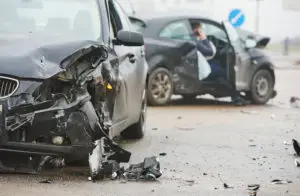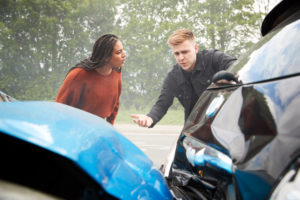Virginia Motorcycle Laws
Whether you are an experienced motorcycle rider or just starting out, it’s important to stay up-to-date on the motorcycle laws in your state. Motorcycle laws vary from state to state, so it is important to be aware of the particular regulations in Virginia. This article provides an overview of the most important elements of Virginia’s motorcycle laws.
The information below isn’t all of the laws, but it contains key elements of Virginia’s motorcycle laws that all riders must know before hitting the road. Knowing and obeying these rules is essential for staying safe on the roads and avoiding any legal issues. If you have any questions regarding specific laws, feel free to connect with one of our Virginia motorcycle accident attorneys.
Virginia’s Licensing and Registration Requirements for Motorcyclists
Hitting the open Virginia roads on your bike starts with obtaining your motorcycle license or endorsement. According to the Virginia Department of Motor Vehicles, the licensing and registration requirements include the following:
- To legally operate a motorcycle in Virginia, your driver’s license must display an “M”, “M2”, or “M3” designation indicating you have a motorcycle classification.
- “M” authorizes operating both 2 and 3-wheeled motorcycles. “M2” is for 2-wheeled only. “M3” is for 3-wheeled only.
- Adults 18 and older can add a motorcycle designation by passing a vision test, knowledge exam, holding a learner’s permit for 30 days, and a road skills test. Completing the VA Rider Training Program waives the exams.
- Under 18 requires the same steps but must hold a learner’s permit for 9 months instead of 30 days. Rider training still waives exams.
- Motorcycle classifications must be renewed alongside regular driver’s license renewals for a small fee.
- Out-of-state licenses can be exchanged for a VA license to obtain a motorcycle designation, but out-of-state training certificates alone are not sufficient. Exams are still required.
- Motorcycle registration is also mandatory, with bikes needing a registration card and plates.
For a Free Legal Consultation
Call The Personal Injury Lawyer Hotline.
804-250-5050
Motorcycle Operating Rules and Safety Regulations in Virginia
Understanding Virginia’s motorcycle operating laws helps keep you and others safe. Key rules include properly using lights, signals, lanes, and traffic control devices. Be aware of right-of-way, passing, tailgating, parking, and open container laws. Following core safety regulations such as:
Helmet Laws
All motorcycle riders in Virginia must wear an approved helmet at all times while operating their bike. The helmet must fit properly and be securely fastened to the rider’s head. Helmets must meet or exceed the standards set by the Department of Transportation (DOT) or the Snell Memorial Foundation.
Passenger Rules
If a passenger is riding along with a motorcycle driver, that passenger must also be wearing an approved helmet. There is no minimum age requirement for passengers on a motorcycle in Virginia, but the motorcycle must also have the proper equipment to accommodate the passenger, including footrests and handholds.
Lane Splitting
Lane splitting is not allowed in Virginia. This means that riders cannot pass between two vehicles in the same lane.
Alcohol Consumption
Motorcycle riders may not operate a motorcycle if they have a blood alcohol content (BAC) of.08% or higher.
Riders must also have their headlights on at all times while operating a motorcycle in Virginia. When on the highway, motorcycles must stay on the right side of the lane. Passing other vehicles can only be done when it is safe to do so and the signal light has been activated.
Let the Heavy Hitters® Take On Your Case 804-250-5050
Insurance and Financial Responsibility of Motorcyclists in Virginia
Carrying motorcycle insurance is not just recommended – it’s the law for motorcyclists in Virginia. You must carry liability coverage plus uninsured motorist coverage. Having ample policy limits and collision coverage is also smart to protect your assets if an accident occurs. Don’t risk fines and suspension by skipping out on insurance.
Central Virginia's Top Rated Personal
Injury Lawyers 804-250-5050
Accident Procedures Following a Virginia Motorcycle Crash
Unfortunately, motorcycle wrecks happen, often through no fault of the rider. If you’re in an accident, move to safety if possible and alert authorities. Exchange information with involved parties and seek medical attention, even for minor injuries. Documenting the scene thoroughly can help demonstrate fault, so if possible, capture video or pictures of the accident scene.
It is recommended that you report the details of your motorcycle wreck immediately to your insurer. Lastly, consult with a knowledgeable Virginia motorcycle lawyer on the next steps and the value of your motorcycle injury case. The more you know, the more your rights remain protected.
Let Us Be The Heavy Hitters® For Your Case Speak To An Attorney Now
Get Affordable Legal Counsel Regarding Virginia Motorcycle Laws Today
Riding is less worrisome when you are aware of Virginia’s motorcycle regulations and understand your legal responsibilities. However, if an accident happens, our motorcycle lawyers serve throughout Virginia and can advise on laws impacting injury claims and maximize your compensation. Get affordable assistance defending your rights with the “Heavy Hitters®” of the Pendleton Law Team.
The Pendleton Law Team Is Here For You 804-250-5050



